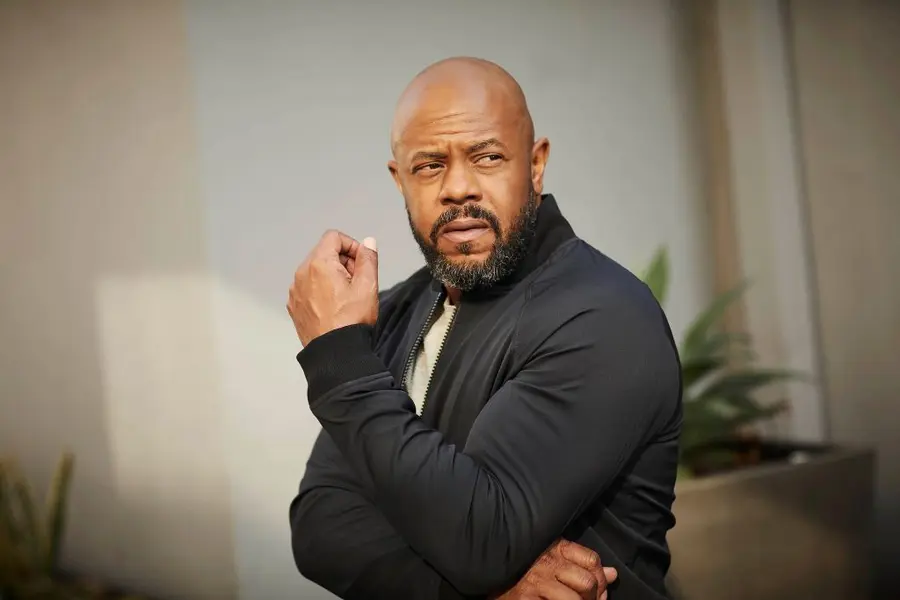A federal jury in Los Angeles has ruled against actor Rockmond Dunbar in his lawsuit claiming Disney wrongfully fired him from the hit series "9-1-1" over his refusal to comply with the company's COVID-19 vaccine mandate. The unanimous verdict, delivered after a four-day trial, ends a three-year legal battle that saw Dunbar allege religious discrimination, racial bias, and wrongful termination. The 52-year-old actor, best known for playing Michael Grant — the ex-husband of Angela Bassett's character — had argued that his faith as a member of the Congregation of Universal Wisdom forbade the injection of chemicals into the body. Disney's attorneys countered that his supposed religious objections were insincere, pointing to his long-term use of prescription and injectable medications.
The case became one of the highest-profile show-business lawsuits to emerge from the entertainment industry's pandemic-era vaccine policies. Dunbar filed suit in 2022 after being written off the Ryan Murphy-created Fox drama in late 2021 when Disney-owned 20th Television instituted mandatory vaccination for all cast and "Zone A" crew. He sought roughly $1 million in damages, claiming that other, non-minority employees who also refused vaccination were not terminated. Disney maintained that it followed federal law, citing the difficulty of making exemptions on tightly controlled television sets where COVID-19 protocols were vital to keeping production running.
When the verdict was read, Dunbar visibly broke down, putting his head in his hands and crying out, "Oh my God! I'm so sorry! We'll be okay," to his wife and children in the courtroom. Outside the courthouse, he struck a defiant tone, telling reporters, "God still won today." Disney's 20th Television released a brief statement after the decision: "We are pleased with today's verdict, which affirms that 20th Television acted fairly and lawfully toward Mr. Dunbar."
Background of the Lawsuit
Dunbar filed his complaint in federal court in 2022, arguing that Disney failed to accommodate his sincerely held religious beliefs. He said membership in the Congregation of Universal Wisdom — a small, fringe religious organization founded by chiropractor Walter P. Schilling — prohibits vaccinations or other "unnatural" medical interventions. In addition to the religious-discrimination claim, Dunbar alleged racial discrimination, contending that white employees who avoided the vaccine were treated more leniently.
His lawsuit initially included several causes of action, but District Judge Dolly Gee narrowed the case in 2024 to three key questions:
- Whether Dunbar's belief qualified as religious under Title VI
- Whether the company failed to engage in an interactive process to explore accommodations
- Whether any such accommodation would have caused undue hardship to the studio.
During pre-trial discovery, Disney unearthed records that seriously undermined Dunbar's claims — including evidence that the Congregation charged only $1 to join and that Dunbar was receiving multiple monthly testosterone injections along with other medications, which presumably contradicted his stance against the COVID vaccine.

9-1-1: Rockmond Dunbar. (Photo by FOX Image Collection via Getty Images)
Testimony and Trial Highlights
During the four-day trial, Dunbar took the stand and delivered emotional testimony about his faith and opposition to vaccination. He told jurors, "Man created the COVID-19 vaccine to separate you from God. This is a spiritual war — a war of evil against good. I stood on the side of God." He also insisted he was not "anti-vaccine," though he acknowledged that his children have received none.
Under cross-examination, Disney's lead counsel Maria Rodriguez challenged Dunbar's credibility, citing medical records showing he regularly received synthetic testosterone and anastrozole — substances deemed "sacrilegious" by his own church's leader. In her closing argument, Rodriguez displayed a list of 37 prescription drugs Dunbar had taken.
Ultimately, jurors sided entirely with Disney. They found that Dunbar's objections stemmed from personal preference, not protected religious belief, and that the studio had acted lawfully when enforcing its safety mandate.
Financial and Career Fallout
At trial, Dunbar testified that he earned about $100,000 per episode on "9-1-1," and was even paid for episodes in which he did not appear — a lucrative arrangement he described as "a dream job" and "like winning the lottery." Since his departure, he told jurors he has struggled to find work and depleted his savings. "I'm underwater," he said. "I've spent my entire retirement. This has taken my life into a hole financially that I will never be able to get out of."
While Dunbar framed the lawsuit as an act of faith, the verdict leaves him with no legal recourse and significant financial hardship. Disney's victory is being watched closely in Hollywood, where vaccination policies were among the industry's most contentious pandemic-era labor issues. For Dunbar, it marks the latest and most dramatic turn in a once-steady career that included major roles on "Prison Break," "Sons of Anarchy," and "Soul Food."
As he left court, Dunbar maintained that his conscience was clear: "Take my cars, my money — I don't care. You have to leave here with your soul intact. This was my spiritual test, and I passed."
/2014/11/Rockmond-Dunbar.png)
/2021/10/GettyImages-1177518527.jpg)
/2020/10/amber.jpg)
/2020/08/GettyImages-1889380.jpg)
/2020/08/GettyImages-480139782.jpg)
/2017/09/John-Steinbeck-e1505588985122.jpg)
:strip_exif()/2015/09/GettyImages-476575299.jpg)
/2020/02/Angelina-Jolie.png)
:strip_exif()/2009/09/P-Diddy.jpg)
/2009/09/Jennifer-Aniston.jpg)
/2009/09/Cristiano-Ronaldo.jpg)
/2019/10/denzel-washington-1.jpg)
/2020/06/taylor.png)
/2020/04/Megan-Fox.jpg)
/2009/11/George-Clooney.jpg)
/2020/01/lopez3.jpg)
/2009/09/Brad-Pitt.jpg)
/2019/11/GettyImages-1094653148.jpg)
/2017/02/GettyImages-528215436.jpg)
/2019/04/rr.jpg)
/2018/03/GettyImages-821622848.jpg)